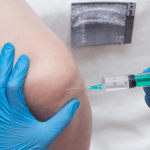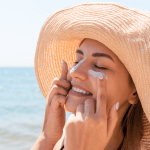Interest in botulinum toxin type A for mood symptoms has grown. In many practices, patient questions now include botox for anxiety alongside typical cosmetic goals. Clinics need a clear, compliant way to discuss what is known, what is not, and how to document decisions.
This article summarizes the evidence base at a high level. It also covers safety considerations, patient communication, and procurement workflow. The goal is operational clarity for licensed healthcare teams, not treatment advice.
Key Takeaways
- Evidence is early and mixed
- Most use is off-label
- Screen and document neuropsychiatric history
- Set expectations about temporary results
- Maintain traceability and handling records
Many suppliers restrict access to licensed clinics and credentialed healthcare professionals.
Botox for Anxiety: What the Evidence Actually Suggests
There is no broad regulatory indication for treating anxiety symptoms with botulinum toxin products. When you see headlines, they often reflect small studies, secondary outcomes, or research in adjacent conditions such as depression. Some trials explore whether reducing certain facial muscle activity changes emotional experience, while others evaluate patient-reported mood outcomes after cosmetic treatment. The data are not uniform, and methods vary across studies.
For clinic teams, the practical issue is expectation management. Patients may arrive after reading social posts or watching “before-and-after” clips that imply predictable mental health benefits. Your consent and counseling language should separate aesthetic outcomes from mood outcomes. If your clinic wants a deeper review of the depression literature and study design limitations, see Botox And Depression Research.
Why it matters: Overstated mental health claims can create consent, documentation, and reputational risk.
It also helps to point patients back to neutral, patient-facing education about emotional expression and injectables. A useful discussion primer is Emotions And Botox, which frames the topic without promising a specific mood outcome.
How Facial and Neural Pathways May Relate to Mood
Clinicians usually explain botulinum toxin as a peripheral neuromuscular blocker. Yet mental health hypotheses focus on downstream effects of altered facial signaling and sensory input. Patients may describe fewer “worry lines,” less tension, or reduced “stress face,” and then attribute improved mood to the injection. That interpretation is not necessarily wrong, but it is not the same as a validated anxiolytic (anxiety-reducer) effect.
The current scientific discussion tends to cluster into two ideas: facial feedback and broader neural network effects. Both remain under study, and neither supports blanket claims. When counseling, you can acknowledge the research interest while reinforcing that anxiety disorders are multifactorial and commonly require dedicated mental health evaluation.
Facial Feedback Hypothesis in Clinical Conversations
The facial feedback hypothesis suggests that facial muscle activity influences emotional experience. In plain language, your facial expression can nudge how you feel. In practice, patients who pursue forehead or glabellar treatments may report fewer cues associated with distress, such as frowning. That may change how they interpret their internal state or how others respond to them socially. It is a plausible pathway, but it is not a substitute for diagnosing or treating an anxiety disorder. Documenting the patient’s stated goals, and whether they are cosmetic or mood-related, helps keep the conversation clinically grounded.
Peripheral Effects Versus Central Interpretation
Some authors also discuss whether altered sensory feedback from treated areas could influence central processing. Even if the drug acts locally, the patient’s perception of tension, appearance, and social feedback may shift. For anxious patients, that shift may reduce triggers tied to self-consciousness. However, the same change can be experienced negatively if the patient feels “not like themselves.” This is where careful pre-procedure counseling and post-procedure follow-up matter.
As you refine messaging, consider using a standardized question set like those summarized in Patient Questions Before Botox. It can reduce improvisation when mood questions arise.
Safety, Adverse Effects, and Mental Health Signals
Patients commonly search botox side effects and is botox safe before deciding on injections. Clinics should be prepared with a consistent safety framework that separates common local reactions from rare but serious systemic concerns. Typical procedure-related effects can include injection-site pain, bruising, headache, and unintended local weakness. Technique, anatomy, and dose selection (per label and training) all influence risk, but your documentation should focus on informed consent, adverse event education, and follow-up pathways.
All botulinum toxin products carry important safety information related to distant spread of toxin effect. Clinics should rely on the official labeling for contraindications, warnings, and adverse reaction profiles for the specific product used. In your internal training, include brief definitions of red-flag terms the patient may not know, such as dysphagia (trouble swallowing), dyspnea (shortness of breath), or ptosis (droopy eyelid). Those terms support clearer escalation instructions without drifting into individualized medical advice.
What to Do With “Reddit Side Effects” Reports
Many patient concerns now arrive pre-shaped by online anecdotes, including searches like botox side effects reddit, botox insomnia reddit, and anxiety after botox reddit. These narratives can be useful for understanding fears, but they are not a substitute for structured pharmacovigilance data. A practical approach is to acknowledge the report, restate what labeling and published safety surveillance emphasize, and document the patient’s baseline symptoms. If a patient has a history of panic symptoms, they may ask can botox cause panic attacks or why does botox cause anxiety. Your role is to avoid causal certainty, review warning signs, and set a plan for follow-up if new symptoms emerge.
Also expect product-comparison questions framed as can dysport cause anxiety or “is one toxin less likely to affect mood?” Units are not interchangeable across products, and adverse event profiles can differ by label, technique, and patient factors. Keep the discussion anchored in training, labeling, and shared documentation. If you need a refresher on injection planning and anatomy-related risk reduction, see Injection Sites Overview.
Because patients may conflate mood changes with neurologic risk, be explicit about what constitutes botox neurological side effects versus transient stress responses. Encourage clinicians to document timing, associated symptoms, and any concurrent medication changes. If a suspected adverse drug reaction occurs, follow your organization’s reporting process and the manufacturer’s guidance.
Setting Expectations: Duration, Photos, and Expression Changes
Operationally, expectation setting is where many complaints begin. Patients may ask how long does botox last and may expect the same timeline for every area. In reality, duration varies by anatomy, dose, technique, and individual response. Effects are temporary and often discussed in terms of months, but your counseling should avoid guaranteeing a specific endpoint. For periorbital areas, patients may specifically ask how long does botox last around eyes, especially if they are tracking appearance week to week.
“Before-and-after” culture adds another layer. Common searches include botox before and after eyes, full face botox before and after, and botox before and after men. Clinics can reduce misunderstandings by standardizing photography, lighting, facial expression prompts, and documentation of timing. Make sure the chart clearly labels the treatment areas and the date each photo was taken. That structure helps when a patient later reports asymmetry or dissatisfaction.
Under-Eye, Cheek, and Brow Expectations
Patients may ask about botox before and after under eyes, botox before and after cheeks, or botox before and after eyebrows, sometimes assuming toxin will treat issues better suited to dermal filler, skin resurfacing, or surgical evaluation. Even when treatment is appropriate, subtle differences in expression can change how “rested” the face looks. Outline what the procedure can and cannot change, and distinguish dynamic lines (movement-related) from static lines (present at rest). This is also a good point to document any pre-existing asymmetry, lid position, or prior facial procedures.
“Crying Face,” Flat Affect, and Social Perception
Some patients report feeling “less expressive,” including concerns described online as botox crying face or botox crying. This can mean different things: altered lower-face movement, a mismatch between emotion and expression, or simply heightened self-monitoring after a cosmetic change. A neutral counseling script helps here. You can explain that targeted weakening of specific muscles can change facial movement patterns, and that social feedback may shift. If a patient has significant distress about emotional blunting or mood change, document the concern, encourage appropriate evaluation, and avoid framing the injection as a mental health intervention.
Clinic Workflow, Sourcing, and Product Comparisons
Once a practice decides how it will address mood-adjacent questions, operations should support that stance. That includes intake language, consent templates, and product traceability. Clinics working with MedWholesaleSupplies should expect a healthcare-professional model with brand-name products supplied through screened distribution channels.
From a logistics standpoint, many practices prefer predictable US distribution for routine inventory planning. Regardless of supplier, keep your internal process consistent: verify the product, record lot details, store per labeling, and document administration in the medical record.
Clinic Workflow Snapshot (Generic)
- Verify licensure and authorized users
- Confirm product identity and lot data
- Document receipt and storage conditions
- Prepare per labeling and training
- Administer and record treated areas
- Track adverse events and follow-up
- Retain records for traceability
Quick tip: Use a single intake field for “mood-related goals” to standardize charting.
Checklist: Documentation and Counseling Items
- Stated goals recorded clearly
- Baseline photos with timestamps
- Medical history and medications updated
- Label-based risk review documented
- Follow-up plan and contacts noted
- Lot number and expiration recorded
- Adverse event pathway explained
Storage and handling is a common gap during audits and incident reviews. Align storage logs with the manufacturer’s instructions and your local policies. For a practical overview of clinic-facing storage topics, see Storing Neurotoxin Products.
When patients ask about specific brands, keep comparisons factual and label-based. Your procurement team may also use a toxin “family” view to reduce confusion across services. The Botox Category can be a starting point for browsing the clinic’s usual options, while maintaining internal review of indications and handling requirements.
| Comparison Factor | Why It Matters | What to Document |
|---|---|---|
| Labeled indications | Defines on-label versus off-label use | Clinical rationale and consent notes |
| Units and preparation | Units vary by product and label | Product name, lot, preparation method |
| Storage requirements | Affects potency and compliance | Temperature logs and expiration checks |
| Patient experience | Sets expectations for follow-up | Patient-reported outcomes, issues noted |
Product pages can help staff confirm naming conventions and reduce selection errors during intake, especially when patients mention a specific brand from prior records. Examples include BOTOX Listing, Dysport Listing, and Nabota 200 IU Vial. Keep clinical decisions anchored to your protocols and the product’s prescribing information.
Suppliers may request licensure documentation to support product authentication and traceability.
If your team fields frequent “which toxin is better?” questions, a structured discussion can help. The article Xeomin Vs Dysport offers comparison themes you can adapt into a neutral counseling script.
Finally, if your clinic is considering how to message botox for anxiety inquiries, align marketing, front desk scripts, and clinician counseling. Consistency reduces downstream complaints and protects documentation quality.
Authoritative Sources
- For official safety information, review FDA Drugs@FDA labeling database.
- For risk communication on toxin spread, see FDA Drug Safety and Availability.
Recap and Further Reading
Patient interest in mental health effects is real, but the science is still developing. A clinic-ready approach pairs careful language, rigorous consent, and strong follow-up pathways. If you choose to discuss botox for anxiety at all, keep the conversation evidence-aware and avoid promises.
Further reading for staff training includes Botox Overview In Practice and Popular Botulinum Toxin Brands.
This content is for informational purposes only and is not a substitute for professional medical advice.






